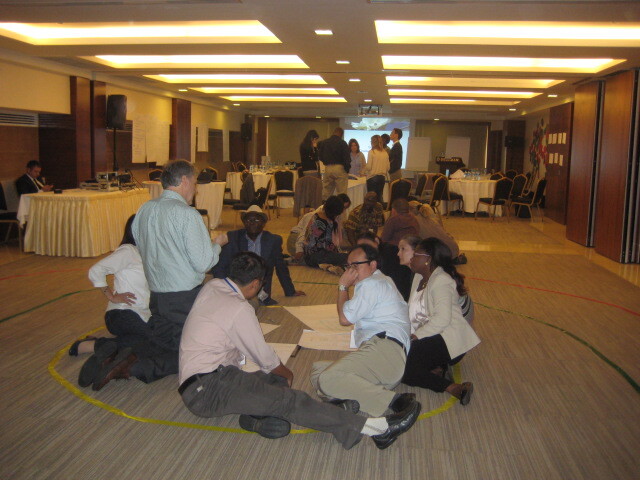Istanbul Child-friendly Schooling for Peacebuilding Workshop, 25-27 September 2014
Following our Child-friendly Schooling for Peacebuilding consultancy for UNICEF, Sustainability Frontiers was invited to facilitate a three-day workshop for UNICEF officers in Istanbul from 25 to 27 September 2014. Attending the workshop were UNICEF officers from Burundi, Chad, Cote d’Ivoire, Ethiopia, Liberia, Myanmar, Palestine, Pakistan, Somalia, South Sudan, Uganda as well as UNICEF officers from UNICEF headquarters, UNICEF East Asia and Pacific Regional Office (EAPRO) and UNICEF Eastern and Southern Africa Regional Office (ESARO) attached to the Peacebuilding, Education and Advocacy Program.
Fumiyo Kagawa facilitated what was a highly interactive and participatory workshop marked by lively exchanges and designed to introduce participants to the key ideas and insights in the upcoming publication written by David Selby and Fumiyo Kagawa, Child-Friendly Schooling for Peacebuilding (New York: UNICEF, 2014).
The workshop looked at the evolving nature and understanding of the concepts of child-friendly education and peacebuilding education before going on to identify ways in which, in both theory and practice, child-friendly schooling was already making a contribution to peacebuilding, secondly its latent, so far unexploited potential for peacebuilding, and, thirdly, gaps in child-friendly schooling provision which, if filled, would allow for a richer contribution to peacebuilding. Areas covered included: school physical environment; school culture; curriculum, teaching and learning; school as community; school in community; school as learning organization; systemwide aspects, including professional development and monitoring and evaluation. Risks and vulnerabilities in orienting child-friendly schooling towards peacebuilding in conflict-affected areas were also considered. Throughout participants were encouraged to apply what was being introduced to their own contexts and, by workshop close, had developed short-, mid- and long-term country-level action plans.

